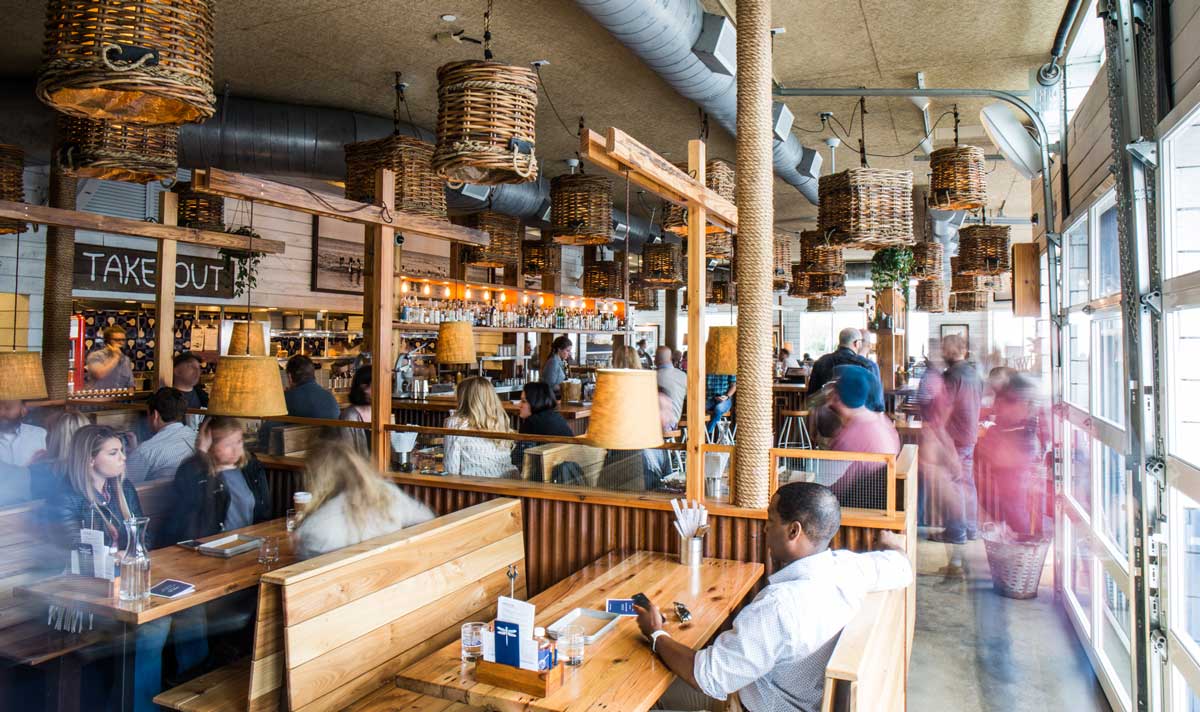As a restaurant owner, your primary focus is on delivering a memorable experience for your customers that is unparalleled by your competition. You dedicate time and energy to developing a mouth-watering menu with trendy refreshments, to be served by a team of professionals who are polite and friendly, while delivering a sought-after ambiance.
Yet, before a dish can be plated or a cocktail served, you must devote time to finding the best location and securing a lease that will stand the test of time. Following are a few of the best practices necessary to help ensure success and protect your investment from build-out to the grand opening and beyond.
Keep Open Dates Open
When negotiating lease terms landlords may push to include a hard opening date for your restaurant, yet chances are there will be some event such as a delayed certificate of occupancy or a buildout gone awry that will delay your grand opening. Be sure to keep the open date flexible to avoid penalties from the landlord. Allowing for some flexibility in the lease for unexpected delays provides the breathing room needed to ensure that on opening day the restaurant is in tip-top shape ready to deliver a quality dining experience.
Inspect Before You Accept
In most commercial leases, it is the landlord’s responsibility to deliver utilities and major systems that meet the new tenant’s specifications. The tenant’s obligations under the lease usually do not begin until the landlord delivers the space with this work completed, therefore it is in the landlord’s best interest to complete this work as quickly as possible. Often times, the landlord’s desire to deliver the space quickly in order to trigger the start of the tenant’s obligations trumps the attention to detail required for the landlord to fulfill the delivery requirements. The tenant must have the right to inspect the landlord’s work and ensure it is completed pursuant to the agreed upon specifications. Be sure to negotiate a dispute resolution mechanism to address a situation where the landlord says the premises have been constructed pursuant to the terms of the lease, but the tenant disagrees.
Protect Holiday Sales
If the lease is set to expire between October 1 and December 31, then include a clause to extend the term to January 15 of the following year. The last thing a successful operator wants to be doing during this lucrative time is closing its doors and moving out.
Do It Yourself
Landlords are usually responsible for maintaining shared systems, such as HVAC and electrical, as well as all structural elements of the building. The lease should allow a tenant to fix these items if the landlord fails to do so in a reasonable period of time. Additionally, it ought to be noted in the lease that if the landlord does not reimburse the tenant, then the monthly rent will be reduced by the cost of these repairs.
Account for Noise or Noxious Odors
In vibrant projects, it is likely that residential, office, and other retail tenants will reside above, below, or adjacent to restaurants. While those other occupants have the right to a peaceful existence, free from noxious smells or noise, the landlord should not be able to default a restaurant tenant for operating in compliance with applicable laws. Leases that reflect a “let’s be good neighbors” clause and that honor local ordinances will minimize the risks associated from potential lawsuits by the landlord or other tenants arising out of noise and odors.
Avoid Double-Dipping
In an effort to align landlord and tenant financial obligations, it is best practice to itemize all charges for common areas that may be passed on to the tenant as well as those that will not be charged to the tenant. For example, if you are in a mixed-use project, you should only be charged for common areas related to the retail component of the development. Carefully negotiating the common area charge provisions in the lease will help avoid double-dipping on items such as paying a property management fee in addition to a landlord’s administrative fee, which is usually intended to cover the management of the property. When both parties are on the same page relating to permissible common area charges, disagreements and unnecessary expenses can be minimized.
Seeing the dream of your own restaurant come to fruition is exciting. However, that dream can quickly turn into a nightmare when attention is not given to lease obligations. Negotiating a lease that clearly outlines your rights, obligations, and duties as a tenant will help to ensure smooth operations for the duration of your lease.
A restaurant’s lease obligations are likely one of the highest outlays of cash other than payroll and food costs. A lease that includes these six best practices can minimize future disagreements, unexpected costs and expenses, and exposure to potential lawsuits. More importantly, it allows you to focus on your business and its success, providing for a congenial and long-lasting relationship between the landlord and tenant.













